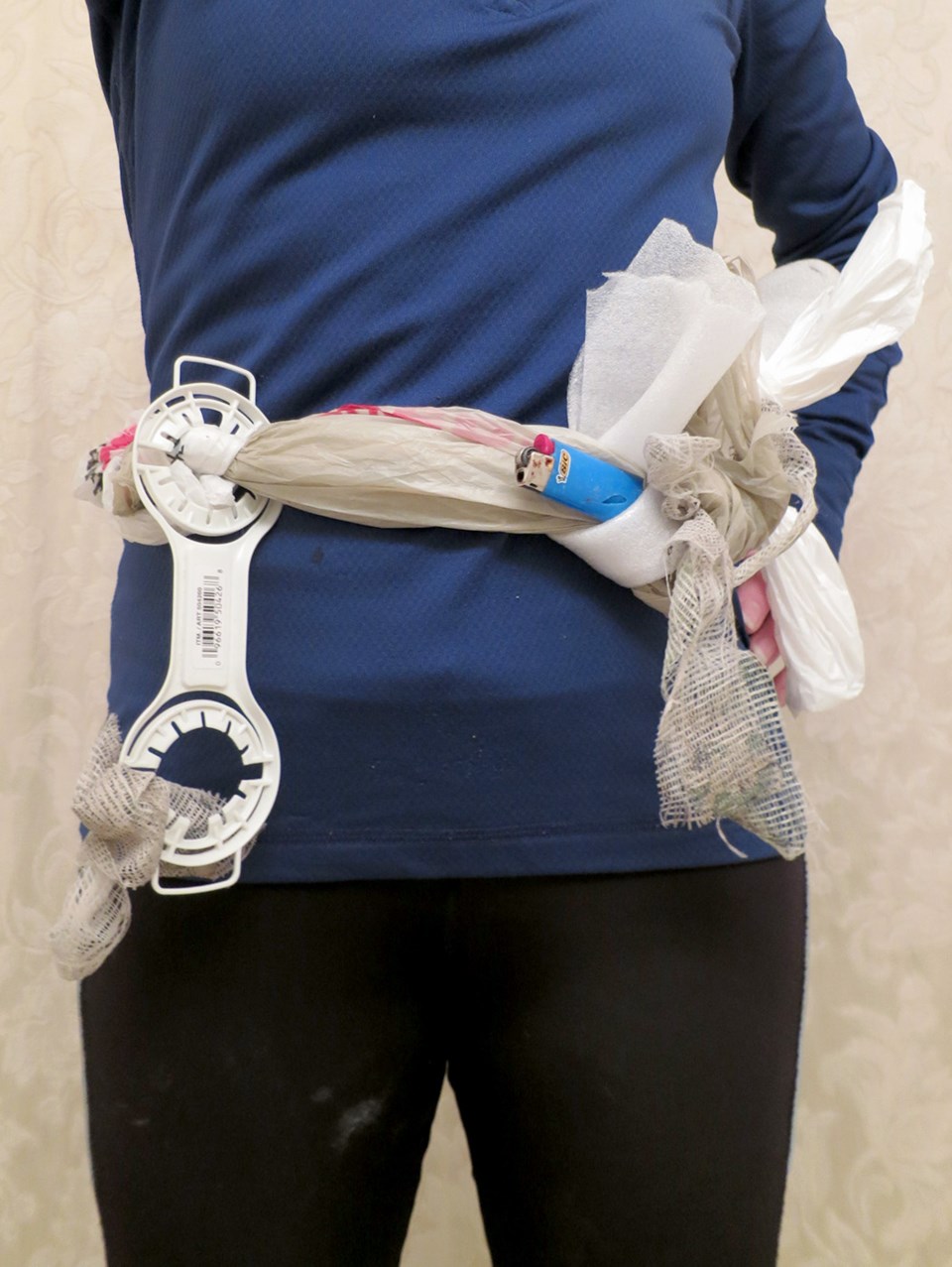I’ve been thinking about writing an article like this for a while. In Summer 2015, during our three-month drought, I began to notice more street litter than usual since it was not being regularly washed away by the rain. Now that our winter of big snow is receding, I’m again noticing more litter than usual.
In September 2015, I wrote an article on ocean plastics pollution. I was shocked to learn that plastics comprise 80% of litter found in the oceans today, with some areas having 60 times more plastic than plankton — the former often being mistaken for the latter, resulting in poisoning, intestinal rupture and/or starvation of other marine life.
I wondered just how so much of our solid waste managed to find its way into the aquatic environment. With my eyes newly opened, I began to take note during my walks and runs.
Most of what falls out of our hands, pockets, garbage/recycling bins and vehicles doesn’t remain on the pavement, trail or boulevard. These items actually find their way down the street, blown or washed downstream, gradually collecting around and into our storm-drains.
Did you know storm-drains are simply pipes that empty into our streams, rivers and oceans?
And this season, they’re particularly jammed due to the sand and gravel many cities had to apply during our icy weather. Maintaining our storm-drain system is labour-intensive and costly to both taxpayers and the ecosystem at large.
But you can do you part. Here are a few things you and I can do to curb the habit of producing wasteful harmful waste:
• Avoid single-use. I live to see the day when most of us tote around our travel mugs instead of the disposable coffee cups. Many establishments are getting better at using compostable takeaway containers but, even better, many will actually accept your own container for taking away your order.
• Choose less. Use durable and/or natural items. Many use their own shopping bags; the next step is doing the same with our smaller (produce) bags — bring your own to re-use, try the cotton option or go naked.
• Watch for the small stuff. Plastic items get crushed and broken by vehicles, making for harder cleanup and easier entry into storm-drains. Keep streets, sidewalks, parking lots, parks and yards free of foreign materials. They litter-ally end up in our oceans.
• Collect soft and hard (unnumbered) plastics separately. Return-It Depots (www.return-it.ca/locations) collect plastic bags, netting and product wrappings from food, etc. Keep a plastic bag under your sink and fill it with clean soft plastics. Tie it closed and drop off when full. Many of us are tossing loose plastics into our blue bins, which does not work. . Hard (uncoded) plastics such as bottle caps, container lids, toothbrushes, glue-sticks, lipsticks, non-refillable pens, etc. need to be collected separately. Return-It Depots take these.
• Recycle responsibly. I notice more and more bags of garbage thrown into blue bins. I can only assume the person responsible did not want to take the time to sort. Having a recycling container under your kitchen sink can help you keep materials organized and clean.
• Deal with dog waste. Seeing used poop bags hanging from vegetation and left to rot on trails and forest floors is upsetting. Ideally, poop bags should be carefully emptied at home — contents down the toilet, plastic bag in the garbage. Until cities implement park-wide composting collections for dog waste, this is the best option.
For more information, check out the U.S. National Oceanic and Atmospheric Administration’s highly informative blog: marinedebrisblog.wordpress.com.
Melissa Chaun of Port Moody is an ecologist with a passion for all things sustainable. She is events co-ordinator with the Rivershed Society of BC, volunteers on various city committees and co-ordinates the monthly meetings for Tri-City Greendrinks. Her column runs monthly.



